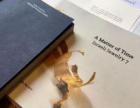aid的用法和辨析
He went to the aid of the injured man. 他帮助那个受伤的人。
(b) in aid of 用来帮助...:
He collected money in aid of charity. 他为资助慈善事业募捐。
该短语通常用于 What’s ...in aid of?(...有什么用?)这样的结构:
What’s the money in aid of? 这钱作什么用?
Now then, what’s all this crying in aid of? 好啦,还有什么好哭的?
(c) with the aid of 借助...的帮助:
We may travel with the aid of a good map. 我们可以靠一张好地图去旅行。
The old man walked with the aid of a cane. 这位老人拐着手杖走路。
2. 用作动词(及物)
They aided us with money. 他们用钱资助我们。
They aided him in scientific studies. 他们援助他从事科学研究。
A good dictionary can aid language learning. 一本好词典有助于语言学习。
注意以下正误句型:
我们已帮助他们提前完成了工作。
正:We’ve aided him to finish the work ahead of time.
正:We’ve aided him in finishing the work ahead of time.
误:We’ve aided him finish the work ahead of time.
3. 比较 aid 与 help:
①help 属普通用词,多用于口语和一般性文体;而 aid 则属正式用词,多用于较正式的文体。
②在表示较大的经济或物质帮助时一般用 aid, 较少用 help。
③两者句型有同有异:
正:help sb (to) do sth (to 可省略)
误:help sb doing sth
正:aid sb to do sth (to 不可省略)
正:aid sb in doing sth
误:aid sb do sth
EXPOSE用法
expose是个动词,意思是暴露,揭露,使曝光
看一个教材原句:
But he became inspired when he thought about helping ordinary people exposed to cholera.
但是他一想到要帮助那些收到霍乱威胁的普通百姓,他就感到很振奋。
expose常用搭配:
expose…to… 使…暴露于…,使…接触到…
be exposed to暴露于;接触到
例句如下:
You'd be exposed to a lot of less polution if you move to a town with pure water and air.
如果你搬到一个水质纯净、空气清新的小镇,你接触到的污染将少很多。
注意:expose的名词形式是exposure(意思还是 暴露,曝光)
fun的用法与搭配
1. It's fun后接不定式或动名词均可,意思基本相同。如:
It's great fun sailing a boat.= It's great fun to sail a boat. 扬帆驾舟十分有趣。
2. 表示做某事很开心,可用have (there is) fun (in) doing sth。如:
We had fun riding our bicycles to the beach today. 我们今天骑自行车去海滨玩得很开心。
There's no fun in spending the evening doing nothing. 晚上无事可干,很无聊。
3. 以下各例中的fun虽用作表语,但仍为名词,而非形容词,故可用great, much, a lot of等形容词修饰,而不用very等副词修饰。如:
She's great fun to be with. 同她在一起很有意思。
Why don't you come with us? It'll be great fun. 干吗不同我们一起去呢?很有趣的。
下面一例中fun前的more为much的比较级。如:
It is more fun to go with someone than to go alone. 偕伴同去比自己独自去好玩。
4. 注意for fun(为了高兴,为了好玩)与in fun(不是当真的,闹着玩的,开玩笑地)意不同。比较:
I am not saying it for fun. 我说这话并不是在开玩笑。
He said so only in fun. 他这样说只是开开玩笑。

 实用的生活知识参考!
实用的生活知识参考!





